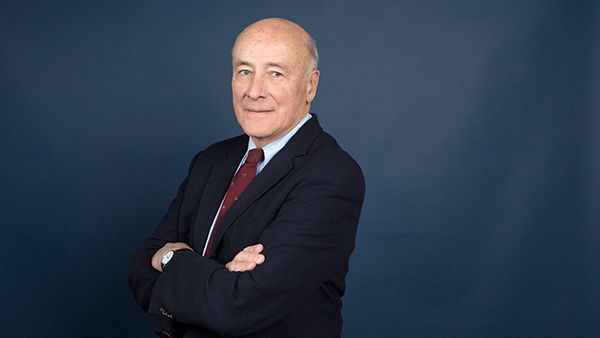In light of recent events in Poland, in the second part of the two part blog series, Alexandra Krawiec, our RSA Connector - Poland looks back at its history.
For many, the socio-political turmoil we currently experience seems to have fallen on us like a bolt from the blue. After a period of relative prosperity and global cooperation, today in many places in the world the political state-of-the-art seems to revolve around polarizing divisions. To some, particularly those who remember the Cold War, what is happening today appears surreal; a yearning for leaders who are archetypal alpha-villains; a bizarre social experiment that aims at resurrecting some of the past monsters. Many of us may wonder: where does this all come from? Are societies and nations so desperately seeking strong leaders that in their attempts to find them elect those like Trump, Putin, Maduro, Orban, or Kaczynski?
In the times of future uncertainty (whether actual or only perceived), societies indeed tend to be in demand of strong, preferably charismatic, leaders. However, the recent electoral choices show a noticeable shift in the expectations we have of our politicians. What we are witnessing seem like some form of crowd phenomenon akin to the Stockholm Syndrome. The majority had shown a preference for leaders who epitomize everything that only recently was considered unacceptable. Public affronts, breaches of political decency, nepotism and disrespect for constitutional laws, are becoming norms today. With this rather distorted model of leadership, new standards are being set. Diplomatic protocol is being redefined, decisions that will impact the lives of the many, today, in some countries, are being made by demagogues and proponents of autocratic chauvinism.
The new leaders and their supporters not only question some of the established standards, but convolute the state of affairs to the extent when it becomes hard to interpret. For instance, the complexity of the current political situation in Poland is difficult to grasp not only for the native experts, but also for the foreign media correspondents. As a result, some of the recently published reports commenting on the situation in Poland were misleading. An example is the interpretations of president Duda’s recent vetoes of the attempted judiciary system reform. Quite a few comments suggested that the Polish president withdrew his support for PiS (Law and Justice, the leading party), on the grounds of the looming sanctions from the European Union. That however, does not seem to be true. Nothing of what was publicly said would suggest that either PiS or Duda had feared the potential sanctions from the EU. What Duda was probably most influenced by where the justified, massive, and peaceful protests recalling the times of the 1980s Solidarity movement. When explaining the motivations behind his vetoes, Duda said that the society was too polarized over that particular issue, and therefore he felt obliged to represent the whole of society and to veto the bills. When rationalizing his decision, Duda also mentioned a meeting with the anti-communist activist who emphasised that she was horrified by PiS strategies, which, in some ways resemble tactics of the Soviet era.
When earlier this month I visited Berlin, the dark past enclosed in the Berlin Wall felt like a wave of a frigid breeze from the historical abyss. The once grim places in Poland or Germany, today are often unrecognisable because beautifully renovated, and, in some sense, they are still symbolic. These places destroyed by fanaticism, and restored thanks to those who regard freedom and democracy over destructive, blind obedience for the system. In the light of this, what is of concern is the irrational nostalgia for the past, yearning for delusions at the price of rational thinking. As argued by Milgram, Zimbardo, and Waller, human beings have a proclivity towards dominating over others by harming. The “evil” in us can be fairly easily triggered causing domino effect of negative consequences. As history shows some seemingly small errors, decisions taken by individuals can have dire consequences for entire societies, can ignite large scale tragic events. Something many of us fear again today.
In the 80s, when trying to attract Poles into Solidarity movement, Lech Walesa would use one of his famous metaphors. He said that the Polish are like those who ride bikes and hope to catch up with the rest of Europe who drives cars. A metaphor which can serve as a reminder of the multiple benefits of the Polish cooperation with the EU. Since the 1980s thank to the EU subsidies and other forms of support, Poland, like other post communist states, has made tremendous progress. Even though relatively few are truly sentimental about the political past, they, together with the majority of catholic radicals make an impact; provide loyal support for the PiS vision of the new order.
Those like Donald Tusk or Frans Timmermans, concerned with the current political situation in Poland urge the Polish leaders to sustain good diplomatic relationships with the EU. Unfortunately, PiS politicians have a different view on these matters, and on a number of occasions expressed disregard for the EU diplomats and EU policies. Against the odds Tusk and other EU supporters appeal to PiS to re-evaluate their political actions before it is too late. It is disconcerting to see that after all that difficult process of transformations from “communistic rags to EU riches”, many seem to ignore the facts, and instead settle for short-term fixes.
After the 1989 breakthrough, the public became very sensitive when it came to ideologically-motivated politicians. What we witness today merely a couple of years ago, would be more likely to be interpreted as a warning sign, another political glitch in the immature system. This is why for many of us PiS's actions are unacceptable and appealing. Political tendencies towards dictatorship as we witness today, seem almost surreal, so wrong that it should only belong to the past. That is why some of the recent actions taking place in democratic countries, even in the very cradle of democracy - the USA, are so painful, and hugely demoralizing. Some of what we observe these days, too closely resembles the patterns that in the past led to instability and turmoil. No wonder many of us are apprehensive about the future, and at least would like to understand why societies fail to learn from their past mistakes. Whatever are the causes, the consequences are tangible and already highly unsettling.
Today, like in the past, many seem to put too much faith in the governments rather than try relying on themselves. This crisis of self-reliance seem conducive to trading freedom for pseudo-security, the Faustian trade, and the abuse of Voltaire's precinct. Some of us, especially the underprivileged groups, may be more inclined to relinquish a part of their democratic freedom in exchange for some deceptive and short-lived comforts; illusive promises and some financial aid.
The aggregate costs of the already done damage are high. Polish society is polarized, while the president and the opposition parties are weak. In the light of the ongoing political conflict, the ideals of Solidarity may indeed seem to have been short lived, too quickly forgotten. However, judging by the numbers of protesters, the spirit of solidarity is still in the nation and, as long as people resist the authoritarians, there is a hope that democracy and liberty will win again.
Related articles
-
Leadership towards regenerative lifestyles
Terence Sexton
Leadership psychologist Terence Sexton FRSA says we urgently need a shift to ‘consciousness leadership’ from those who shape our society. Are we ready to make that shift?
-
"You have to learn how to balance power over others and power with others"
Joseph Nye Lauren Gambino
Joseph Nye in conversation with Lauren Gambino on the changing world order post Covid-19.
-
Vaccine distribution
Salim Abdool Karim
Until the pandemic is under control globally, no country will be safe.




Join the discussion
Comments
Please login to post a comment or reply
Don't have an account? Click here to register.
Among other things they oversaw the evictions of 55,000 low end tenants in Warsaw alone as part of the EU's biggest property scandal.
Poland is a foreign-owned country (PIcketty). https://www.bloomberg.com/view/articles/2017-09-12/how-western-capital-colonized-eastern-europe 2005-15 EUR 135 billion in profits repatriated from Poland ... more than the EU gave in grants. Our leading judges? Gersdorf and Zdziennicki - Communist husband and wife team ...